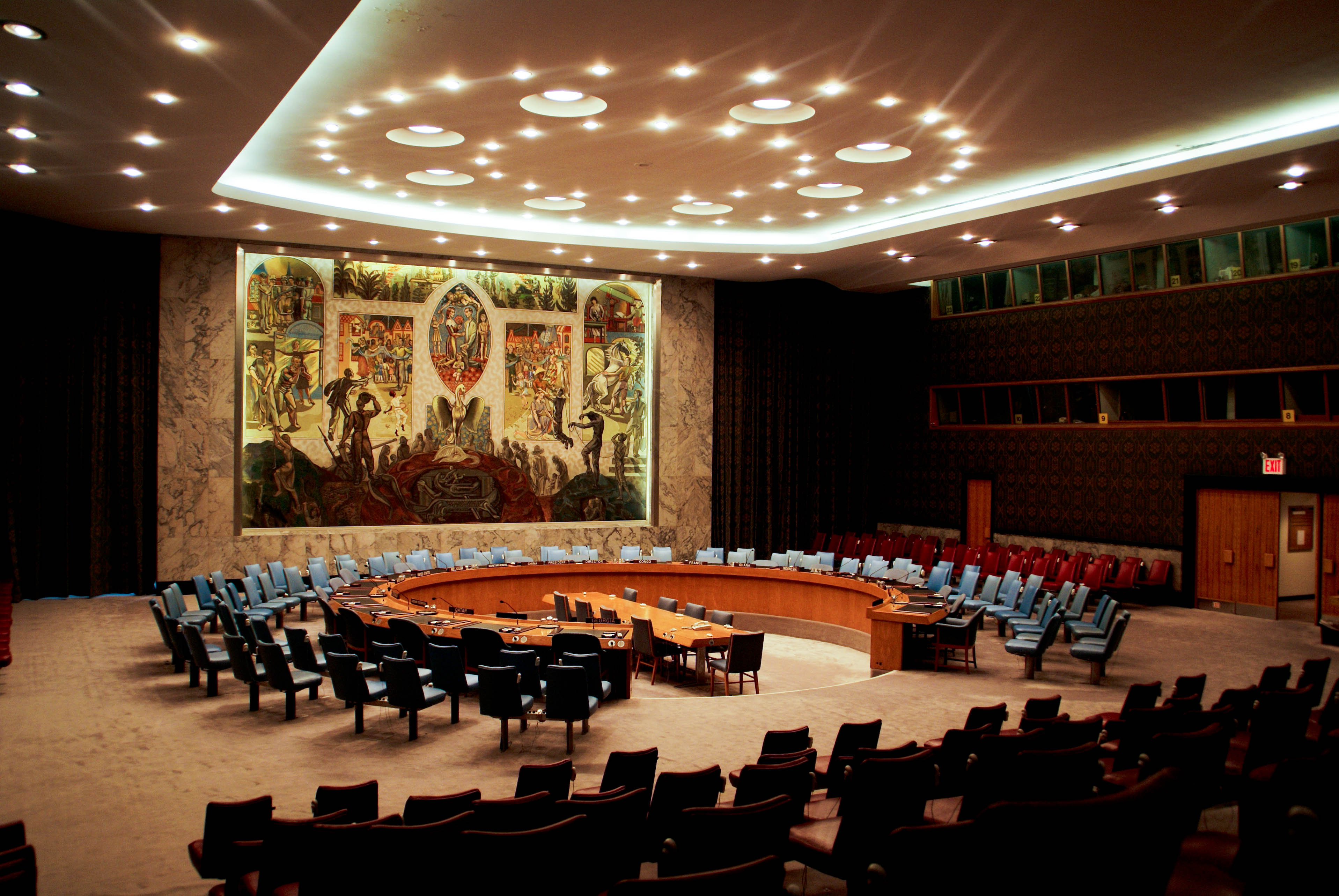12 minute read
Expanding the Scope of International Criminal Law
By Stephen Riley

“International Criminal Court, ICC” Roel Wijnants. Used under: https://creativecommons.org/licenses/by-nc/2.0/
In the past few weeks we have witnessed the activation of the crime of aggression as a crime triable by the International Criminal Court (ICC). This formal operationalising of the crime takes place against a wider debate in civil society about the extension of the material jurisdiction of the Court. Alongside its existing material jurisdiction it has been argued that the ICC should try activities like crimes against migrants, environmental crimes, cyberwarfare and other criminal activities of international concern. These are all prima facie candidates for criminal liability and they deserve to be taken seriously as international criminal offences. The intention of this discussion is to separate principle from pragmatism in understanding these as international crimes. I argue that three core principles underlie our international criminal institutions: non injusta lex est, basic standards of humanity, and the idea of a jus gentium. These are natural law principles recognised under international law and support at least some further expansion of the scope of international criminal law.
Jurisdiction
The material jurisdiction of the ICC is limited to genocide, crimes against humanity, war crimes, and the crime of aggression. These crimes reflect the settled view of the international community, at least since Nuremberg, on what should be prosecuted internationally. The elements of the crimes – their various types and manifestations – were refined by the Ad Hoc Tribunals for Yugoslavia and Rwanda. Conversely the crime of aggression has taken its modern form through negotiation and is meant to enhance the existing law of the UN Charter and a 1974 General Assembly Resolution defining ‘aggression’.
Until relatively recently the confinement of the ICC’s jurisdiction to these egregious international crimes was subject to relatively little sustained analysis or criticism (exceptions being work by Cryer, Kress, Heller and Schmid). However, a number of specific candidates for crimes have been posited.
First, hope was kindled that the Court would take direct prosecutorial action over environmental degradation and resource theft. Premised on a partial reading of a document issued by the Court, these hopes were exaggerated because any such prosecution would require a nexus with a wider crime against humanity.
Second, efforts to treat cyberwarfare as a form of aggression are, equally, held to be a potential extension of existing criminality, namely of the crime of aggression. It is nonetheless unlikely that cyberwar will gain independent codification both because of its novelty and because of opposition from the Members of the Security Council.
Third, contemporary mistreatment of migrants has been held to be a form of crime against humanity, a partly plausible reading of the law now that the crime is no longer linked to international armed conflict. Nevertheless the nature of crimes against humanity, requiring a widespread and systematic attack on civilians, is likely to render this difficult to realise in practice.
Finally, there is recent interest in the possibility of economic, social and cultural rights (‘ESC rights’) forming part of the jurisdiction of the court. The plausibility of this derives from the entanglement of ESC right violations with the existing crimes; egregious crimes against civilians will almost certainly involve economic or social abuses and a wider (ideologically driven) attack on a civilian population may provide cover for extensive (but more opportunist) crimes against property. The likelihood of the Court taking a more systematic and independent interest in violations of ESC rights is nonetheless slim; they are of ‘international concern’ but presently outside the sphere of international crime law ‘stricto sensu’.
These are all in one way or another reasonable expansions of the existing crimes or have at least intuitive claim to being of ‘international concern’. They are problems that appear to outstrip the concerns and resources of single States alone, and they are characterised by harms that can be felt across the international community. Opposition to their becoming crimes sometimes turns on the rather slim claim that ‘international crimes’ has a settled legal meaning because of its lineage to Nuremberg and thence to customary international law. But this neglects the fact that the Nuremberg Charter was itself a creative leap of codification. In other words, ‘fidelity to existing categories’ is not the same as identifying ‘crimes of international concern’ and identifying internationally criminal acts is a principled, not a purely historical, inquiry.
Why, then, are we likely to see maintenance of the status quo in international criminal law? The barriers to change are political, institutional, and doctrinal.
Structural Limits to Expansion
It is a given of the international political order that States are reluctant to formulate legal prohibitions that they themselves are likely to fall afoul of. Accordingly, the evolution of international criminal law is slow and its present form represents hard won accomplishments in the face of widespread reluctance, reluctance still in evidence in the deliberations of the Security Council.

“UN Security Council”, Zack Lee. Used under: https://creativecommons.org/licenses/by-nc-nd/2.0/
There are important institutional limitations relative to the ICC itself. The Court’s function and scope are determined by treaty; amendments to the treaty would require, in effect, the preponderance of the world’s States to agree on changes. It should also be noted that the function of the Court was to act as a ‘back-stop’ to domestic prosecutions, taking jurisdiction only where States are unwilling or unable to do so. We should, then, look to other organs of the United Nations to be innovative in the codification of crime.
The doctrinal limits to expanding jurisdiction concern the conservative nature of legal interpretation. Legal interpretation must reflect the original purposes of the law, not simply bend to reflect present needs. Moreover, the proposed crimes draw together different fields of law; change in the law would require ICC law to be creatively combined with human rights law and with other soft law instruments. This is not the kind of creative synthesis which we can expect from international courts. And, in part, there is good reason for this. Where we deal with criminal law we demand clarity and prospectivity in criminalisation and adjudication: radical change in law can be an injustice.
Underlying Principles
Nevertheless, law is never quite reducible to its institutional, political and doctrinal limits. The remainder – the underlying principles or the spirit of the law – are always discoverable where institutions are under strain or where doctrine runs out. In the case of international criminal law these underlying principles are sometimes opaquely expressed as an ‘end to impunity’. While this captures international courts’ commitment that might does not make right and that those in power must face judgment, it is not enough to explain the material scope of international criminal law. Three principles are important and help to explain the scope of international criminality.
First, behind the idea of ‘end to impunity’ is the more ancient principle of non injusta lex est: an unjust law is not a law. The criminal liability of Heads of State and State officials rests on the idea that legitimate political authority is never a sufficient condition of the morally and legally defensible exercise of authority. There are limits to political authority, and when those in power commit egregious crimes we have the right to hold them accountable or, more precisely, we negate their defence of ‘justification’. There is no justification, no defence, of acting in the interests of the State or under lawful superior orders. Thus a crucial principle is hidden away in the defences available to defendants: we do not find a defence of superior orders, or necessity of State, amongst the defences because we do not believe that political authority or raison d’état are exhaustive of what is lawful.
“The material jurisdiction of the ICC is limited to genocide, crimes against humanity, war crimes, and the crime of aggression.”
Rather differently, at the centre of the international crimes is crimes against humanity. ‘At the centre’ because in a certain sense it can encompass the other crimes and because international crime is crime that is an affront to humanity. These are two different ideas and represents two different principles.
On the one hand, ‘humanity’ is a standard. It is a standard of treatment that no behaviour should fall below even in war. The very fact that we use the standard of the ‘humane’ to govern the treatment of non-human animals demonstrates that this is minimum common denominator. It is baseline treatment rather than ‘humanity’ in any ideal or aspirational sense. But human ingenuity in cruelty and barbarity knows no limits, and the continual refinement of ‘crimes against humanity’ and the inclusion of partly variable elements within the law captures unforeseen possibilities for cruelty against the innocent. This means that ‘humanity’ is a minimum but variable standard, an idea to be returned to in a moment.
On the other hand, ‘humanity’ is a constituency to which the defendant must answer. When a defendant is prosecuted or a government is targeted, we make them answerable to a constituency not only outside their own State but beyond the contingent will of existing States. Defendants are answerable to an idealised, but nonetheless authoritative, body of States and body of opinion who will impose judgment on behalf of humanity. This is in effect appeal to the jus gentium, the international law of nature and nations. So, crimes against humanity are not just failures in basic standards, they are crimes against a postulated international body politic and its universal (not just minimum) standards.

“Humanity” Olga Caprotti. Used under: https://creativecommons.org/licenses/by-nc/2.0/
Expanding Jurisdiction
These give us principled but circumscribed grounds for expansion of international criminal law in the face of institutional and political barriers. First, the non injusta principle is legitimately engaged where power is being used for egregious ends (though this need not mean only where agents of the State are misusing power). It is a uniquely powerful means of drawing limits to, or negating, legal and political authority but one that (by definition) can never be completely captured in positive law. It is precisely the ambiguous and uncertain scope of this principle that makes it necessary for it to be litigated and given determination in practice. If, like the International Court of Justice, the ICC were able to give advisory opinions, then we would be able to transcend at least some of the more conservative doctrinal limits on international criminal law while not directly engaging in the prosecution of individuals. Thus the legality or otherwise of activities like cyberwarfare or even humanitarian intervention could be determined not by the realpolitik of the Security Council but by the considered judgment of an international court either in advance of, or after, action by States.
Second, the basic standard of humanity appears to offer the most promising ground for direct material expansion of international criminal law. In application, the principle is found in the Martens Clause, the legal principle that humanitarian prohibitions should be dynamic because of warfare and weaponry’s changing nature. It insists that criminal law must be dynamic and cannot be treated as complete. The identification of new offences arises from “usages established between civilized nations, from the laws of humanity and the requirements of the public conscience” i.e. from the non-positive but morally compelling basic standards determined by international civil society. The moral (and in turn legal) force of basic but dynamic standards cannot be confined to State actors and the protection of soldiers in conventional armed groups. International criminal law itself should be able to expand its basic protections wherever there are basic, urgent, threats to non-combatant populations. This would certainly include cyberwarfare, and new military technologies, but also egregious environmental damage. A greater number of resource-based conflicts in the future as a consequence of climate change will mean the dynamics of warfare will increasingly be driven by civilian populations, in extremis, with self-preservation at issue. Under those circumstances, ‘humanity’ cannot simply be defined by the inhumanity we associate with conventional international warfare. And the actions of private actors may well fall beneath this standard too.
Finally, the constituency of humanity has to be understood as the entitlement of humanity, as such, to judge and punish wrongdoing. While the State judges and punishes in the name of the citizenry and their rights, the international community is entitled to punish the ‘enemies of all humanity’ under norms common to all people. Assuming a jus gentium need not mean that judgment in the name of humanity must take place only in international courts. Cosmopolitan trials and prosecutions take place at the domestic level and international standards are enforced in domestic courts. Accordingly, a neat separation of international and domestic is problematic. A jus gentium requires a proper subsidiarity of international criminality. So, while it may be desirable to consider systematic violation of economic and social rights at an international level – i.e. under the advisory system advocated above – the proper place for determining any criminal liability will be at regional levels. Regional and transnational institutions are particularly important for ESC rights because, while violations of such rights intersect with existing criminal laws, their adjudication needs specific application to actual communities and constituencies.
So, why should international criminal law not encompass all and any crimes that are of concern to humanity? The answer is that we already have good principles of inclusion and exclusion. International criminality is not decided on the basis of the contingent will of existing States. Coherent international criminalisation arises (as the Martens Clause insists) from “usages established between civilized nations, from the laws of humanity and the requirements of the public conscience.” This captures, in essence, the inclusive principles that govern criminalisation at the international level: the subordination of legal authority to moral obligation, the existence of standards transcending the State, and the right of humanity itself to judge.
Disclaimer: Any views or opinions expressed on The Ethical War Blog are solely those of the post author(s) and not The Stockholm Centre for the Ethics of War and Peace, Stockholm University, the Wallenberg Foundation, or the staff of those organisations.


